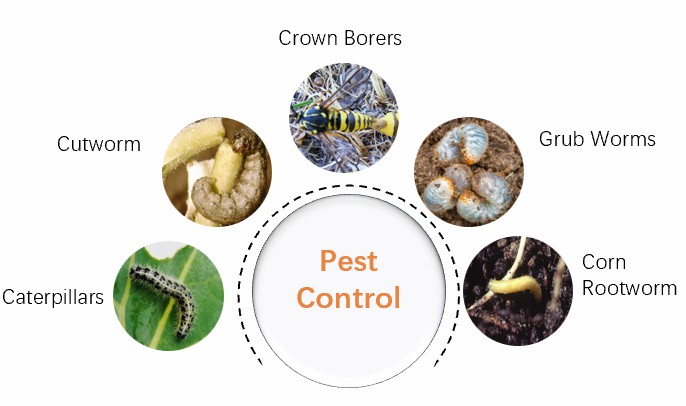Beneficial nematodes, such as entomopathogenic nematodes (EPN), are specialized parasitic natural enemies of insects. They are an important class of pest biocontrol factors, with high host-seeking ability, high infestation lethality, rapid action time, harmless to mammals, and relatively simple mass production, and have great potential for application in sustainable pest management. There are three stages of development, including egg, larvae, and adult. The larvae have 4 instars and become adults after 4 molts. Infested larvae generally stagnate and do not feed, except in the tolerant state (dauer juvenile), the only stage in the life history of beneficial nematodes that infests host insects.
Lifeasible makes full use of our specialized libraries, selection strategies, and maturation techniques to optimize the stability and performance of plant science. With advanced technology and experienced staff, we provide mechanism analysis of pest control by beneficial nematodes to global clients to support their research.
 Fig.1 Pest control by beneficial nematodes.
Fig.1 Pest control by beneficial nematodes.
Lifeasible offers reliable mechanism analysis of pest control by beneficial nematodes to meet your research demands. With years of experience in plant science, our advanced platforms can help our clients solve various difficulties and conduct research. If you are interested in our services or have any questions, please feel free to contact us or make an online inquiry.
Lifeasible has established a one-stop service platform for plants. In addition to obtaining customized solutions for plant genetic engineering, customers can also conduct follow-up analysis and research on plants through our analysis platform. The analytical services we provide include but are not limited to the following:
July 13, 2024